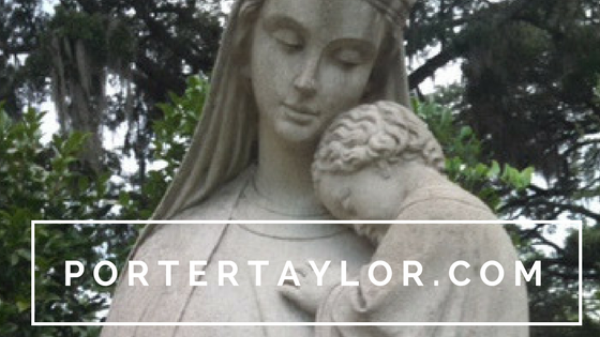My Story--The Story
This weekend Jo and I drive to Alexandria, VA for six weeks. I am teaching two classes at the Virginia Theological Seminary. Yes, we will go to the museums; our favorite custom on Sunday is to eat lunch at the National Gallery after church and then just walk through the rooms and wonder.
Both the classes I’m teaching have a strong literary bent: “Dante: Going to Hell and Getting to Heaven” and “Using Poetry and Fiction in Sermons.” As I looked at all the classes offered at VTS this semester, I realized how much of my theology is through a literary lens.
A long time ago I was teaching 12th Grade English at Lovett School in Atlanta. I was walking to my car on a hot April afternoon and one of my students was sitting under a tree crying. Bawling. I tried to pretend I hadn’t seen her so I could get on with my life away from work, but my better angel steered me to her and I asked what was wrong. She held up Tess of the D’Urbervilles, a novel by Thomas Hardy. Through her sobs she said, “It’s this book.”
I stared at her because I had been afraid no one in the class would actually read the book much less appreciate it. But this student’s story in some way was Tess’s story. When she read the text, she was reading her life, and because of that on a hot Atlanta afternoon, it wasn’t Tess she wept for.
So much of my faith is like this. I have never spent much time worrying about whether the Bible is “true.” I don’t think about the archeological data or whether if we could carbon date the Shroud of Turin, we could be more comfortable with our beliefs. Much of my faith comes from knowing that this sacred story I am reading is reading me. When I read the scriptures, I could also sit under a tree and hold up the Bible and say “What’s going on with me is because of this book.”
I am teaching these classes at VTS more for myself than the students. I constantly need to be grounded in the wonder of the never-ending story of salvation. I need to believe that if I feel as if I am in exile, the Lord will bring me home because that’s how powerful God’s love is. Or if I feel as if I am crippled and can’t get to the source of healing, my friends—my community of believers—would chop through a roof if they had to because that’s what community means. My story makes sense to me because it’s part of God’s larger story of salvation, and honestly that’s the primary way the Biblical story makes sense. If scripture is just about God doing something amazing a long time ago with the people lucky enough to have lived in sacred times, then what difference does it make to me or you? The Bible is not the last word; it’s the living word.
Yes, at VTS I am hoping to teach something useful to my students to make them better priests and not to bore them or spend our time puzzling over the proper way to write a bibliography. But most all I am praying that we play in the world of story--that like the film Jumanji, when we open The Divine Comedy or the poems of James Tate or Mary Oliver or Naomi Shihab Nye, we don’t analyze them. Instead we find ourselves in this new world where we can look back and see our own more clearly—as if for the first time.
+Porter
